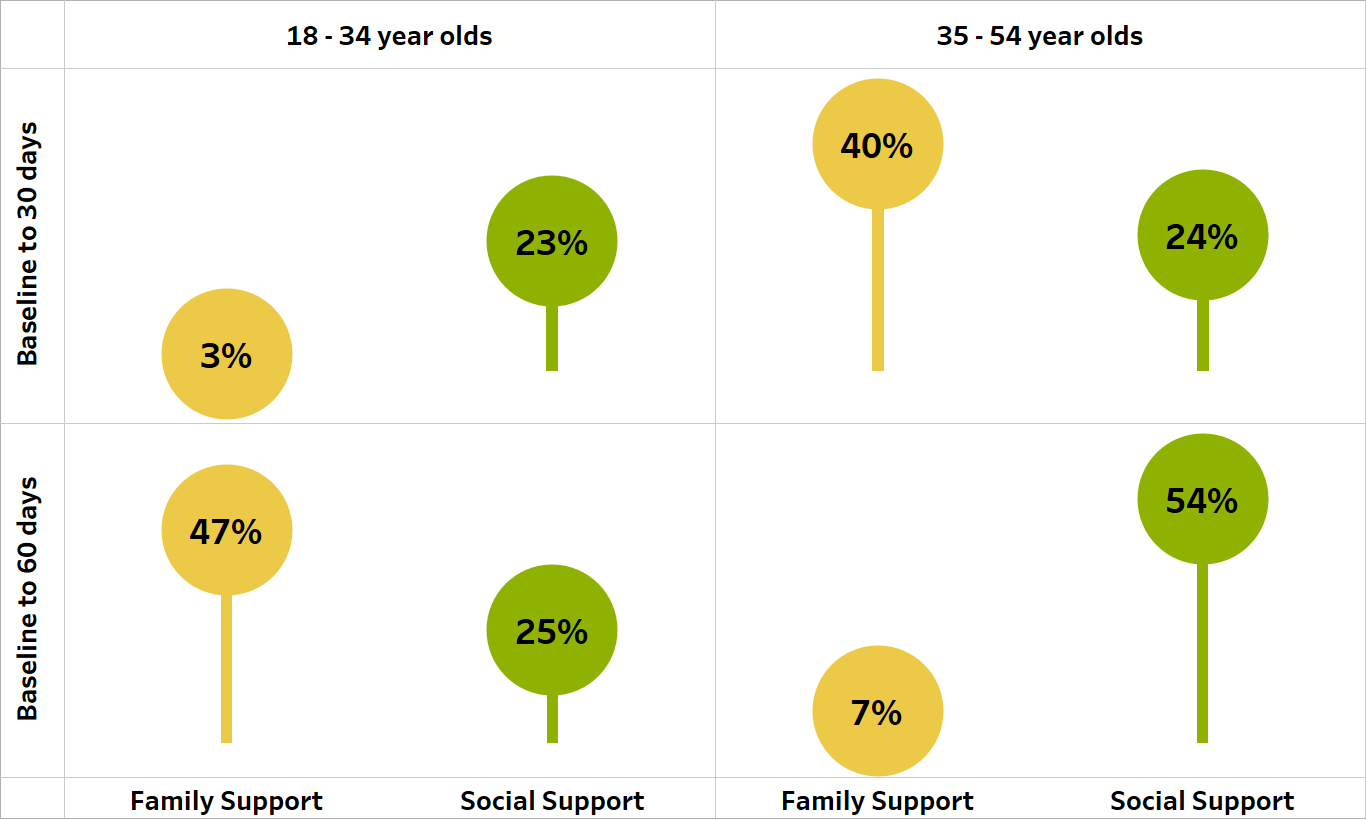Data drop: Generational differences in support
August 5, 2019
This month’s data drop is 29%.
There are many common behavioral symptoms of addiction, including significant harm to meaningful relationships. Almost one-third (29%) of Face It TOGETHER (FIT) members with addiction tell us they are struggling with both family and social supports when they enroll in coaching. Nearly half tell us that they are struggling with either one of these areas (family support: 41%; social support: 51%). Improving connections with others is often the most critical step for our members as they work to improve their wellness.
The average age of our members with addiction is 38 years old. Relationships with others, including improving those connections, is a frequent topic of conversation with peer coaches regardless of a member’s age. However, a review of data collected since 2016 shows some interesting differences in relationships when comparing two groups that make up 80% of our members (18 to 34 years old and 35 to 54 years old).
Members who are 18 to 34 years old are more likely to have struggles with social support (50% of members) than family support (38% of members) when they enroll.
-
After 30 days of engagement with a FIT coach, members of this age group demonstrate an average 23% increase in their social support scores on the Recovery Capital Index (RCI). In comparison, their family support scores improve by an average 3%.
-
At 60 days of engagement, these same members continue to see improvements in both areas, however, they show an average 47% increase in family support scores compared to a 25% increase in social support.
Members who are 35 to 54 years old have similar struggles in both family (41% of members) and social (46% of members) support areas when they begin their engagement.
-
After 30 days of FIT coaching, these members demonstrate on average a 40% increase in family support score when compared to their baseline. Social support scores increase at a lower rate (24%).
-
At 60 days of engagement, these same members are more likely to show a positive increase from their baseline in social support scores (54% increase) than family support (7% increase).
On average, members 18 to 34 years old improve social and family supports at different times in their engagement than members 35 to 54 years of age. Meaningful, healthy relationships take a lot of work, whether they’re with a peer or a family member. Our younger members often focus their attention on rebuilding a strong, healthy social network; this group is often single and the relationships with their peers are very important. Our more mature members tend to be in committed relationships and have children; this group views rebuilding of family relationships as the most important. Once our members make progress in one area of relationships, they can focus their attention on other types. After 90 days of engagement, our members typically show improvements in their relationships, regardless of the type.

This knowledge discovery process provides valuable information for FIT. We use insights like this one to continually improve our peer coaching program. This includes the future development of a predictive model, which will tailor our services to ensure the greatest potential success for each member.
